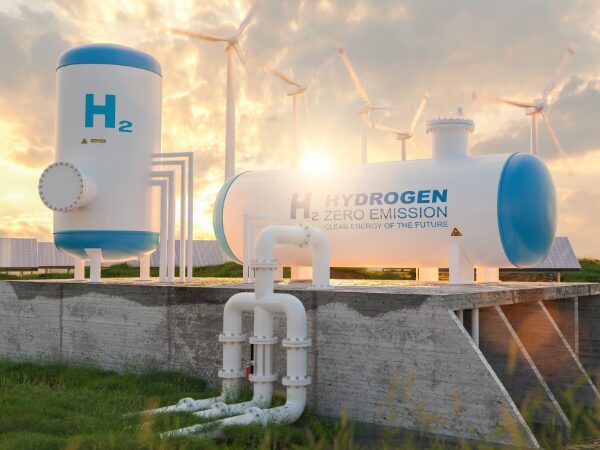5 Quebec Business Grants You Can Apply to Right Now
From innovative startups to established enterprises, securing funding can be a game-changer for y...

In a groundbreaking development, researchers at the University of California Berkeley have designed a hand-held sun-powered water harvester capable of extracting and converting water molecules from the air into drinkable water using only ambient sunlight as its energy source. This incredible invention, showcased in a recent study published in Nature Water, has the potential to provide clean water anywhere, tackling the growing water scarcity crisis exacerbated by climate change.
The hand-held water harvester employs a specially designed ultra-porous material called a metal-organic framework (MOF) to extract water repeatedly, even in the harshest and driest regions. To put it to the ultimate test, the researchers ventured to Death Valley National Park, known for its extreme weather conditions, and successfully harvested water using the MOF-powered harvester. This demonstration highlights the device’s effectiveness in addressing water scarcity, a pressing issue faced by nearly one-third of the world’s population living in water-stressed regions.
Unlike other materials such as hydrogels, zeolites, or salts, which struggle to function efficiently in low-humidity conditions, MOFs exhibit exceptional performance, energy efficiency, and high capacity simultaneously. This versatility makes them a powerful tool to combat water scarcity across various domains, ranging from drinking water to agricultural irrigation. Moreover, this technology has the potential to purify water in regions abundant with water resources but lacking in cleanliness.

The study conducted by the Berkeley researchers underscores the role MOFs can play in combating and adapting to climate change. At the forefront of this research is Omar Yaghi, a chemistry professor and the inventor of MOFs, who is leading the study. He emphasizes the importance of harnessing new water sources, given the projected water stress that nearly 5 billion people will experience by 2050. Yaghi also leads the College of Computing, Data Science, and Society’s Bakar Institute of Digital Materials for the Planet (BIDMaP), which utilizes data science and machine learning to accelerate the design process of MOFs and related devices.
At BIDMaP, the “digital innovation cycle” is the key concept driving their research. By integrating molecular design, material optimization, and device efficiency, they aim to achieve the highest performance in MOF-powered water harvesters. Each component must be optimized to create a seamless connection between molecules, materials, and the final device design.
During the testing phase in Berkeley, California, and Death Valley National Park, the MOF-powered device demonstrated remarkable efficiency and reliability. Despite the extremely low-humidity conditions and varying temperatures in Death Valley, the water harvester consistently extracted water from the air. Impressively, it released 85 to 90 percent of the captured atmospheric vapor as drinkable water, producing up to 285 grams of water per kilogram of MOF in a day—equivalent to a cup of water.
Notably, the device operates with utmost energy efficiency, relying solely on ambient sunlight and eliminating the need for additional power sources. This unique feature sets it apart from other water-generating technologies that contribute to global warming through emissions. Additionally, the new MOF-powered harvester is smaller than its predecessors, easily fitting into a handbag. Despite its reduced size, it boasts even greater energy efficiency, producing over three times the water productivity rate of previous models developed by Berkeley’s team.
The experts behind this revolutionary device are excited about its potential impact on the environment. With further advancements in efficiency, size, and scalability, they envision widespread adoption of MOF-powered water harvesters in households and communities. Harnessing the power of data science and machine learning, these devices could find a place in kitchens or next to air conditioners, providing homes with a sustainable source of clean water for various purposes. Some companies are already working on realizing this vision.
Yaghi sums up the significance of this invention, stating that it “gives individuals water independence.” Indeed, this hand-held device represents a major stride in addressing the global water crisis, ensuring access to clean water for millions of people worldwide. As researchers continue to push the boundaries of science and technology, innovative solutions like the MOF-powered water harvester offer hope for a more sustainable and resilient future.
Companies that are innovating in this sector are likely to be eligible for several funding programs including government grants, and SR&ED.
Want to learn about funding opportunities for your project? Schedule a free consultation with one of our experts today!
Sources:
Woochul Song et al, MOF water harvester produces water from Death Valley desert air in ambient sunlight, Nature Water (2023). DOI: 10.1038/s44221-023-00103-7
https://www.techexplorist.com/portable-solar-powered-water-harvester-combats-water-scarcity/
Explore our latest insights
More arrow_forward
From innovative startups to established enterprises, securing funding can be a game-changer for y...

Have you heard about the SR&ED updates proposed in the Federal budget 2024? Learn how these u...

A new tax credit, the clean hydrogen tax credit, may be on the horizon for businesses that invest...

The Clean label has transitioned from trend to a lifestyle placing pressure on the food and bever...